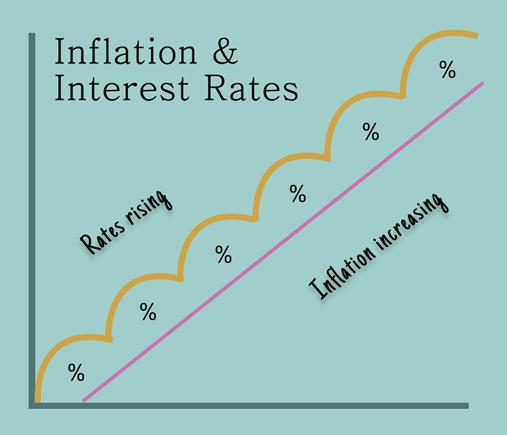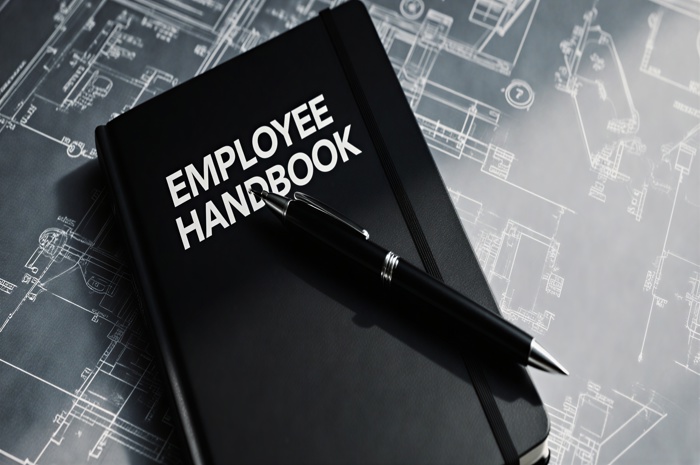Inflation has been a common conversational topic in the last few years, especially with the cost-of-living crisis due to Covid, etc. – but what exactly does it mean? Inflation is the rate at which the general prices for goods and services rise, and the purchasing power of money falls. In simpler terms, it means that goods cost more now, than they did in the past. So as the value of money decreases, so does our purchasing power, since you can buy less nowadays with the same amount of money than you could, previously.
In the UK, the
inflation percentage is measured by the Office for National Statistics, and they calculate it using the Consumer Price Index. This tracks the prices of goods and services over time to see how they have changed. At the moment (as of August 2025), the rate of inflation is 3.6%, however, typically the aim is to keep the rate around 2%. A few ways that the government and banks combat this is by increasing interest rates, raising taxes, reducing spending/borrowing, and more. Now that we know the basics of what inflation is, let’s take a closer look at what this means for you as a
small business owner.
1. Increased Costs
Inflation can greatly increase the cost of everything that is required to run your small business. One of the first expenses that it impacts is the cost of raw materials and supplies that are needed to create your company’s products/services, as the prices of these items drastically rise. This means that the overall cost of good sold increases for your business, thus reducing your gross profits. Not only does inflation impact the costs of your supplies, but it can also affect the price of other necessities such as rent, fuel, electricity, and more, which you need in order to run your small business. Furthermore, it can also encourage higher labour costs for your employees. The cost-of-living crisis was something that was heavily impacted due to inflation, and in turn, it lead to an increased desire in employees to seek higher wages in order to match that.
All of these costs add up and begins to strain a business’ bottom line. But you might be thinking – what is that? It is the net income that a business receives after taking away all the costs from the income. This means that if these basic costs such as rent are increased, their bottom-line decreases. This may lead some businesses to increase their prices in order to offset this, however, that doesn’t always work, as typically during a recession, people are less likely to spend.
2. Reduced Consumer Spending
This takes us into reduced consumer spending, as typically when inflation occurs, people tend to constrict their spending a bit more! Wages don’t rise as fast as prices, so consumers have less disposable income and they reduce their spending both on necessary items, by choosing cheaper options, and just cutting back in general on other discretionary items. This impacts businesses as they are not generating as many sales, as often
small businesses may have slightly higher prices or more niche products due to their nature and power over the market, compared to big brands. Consumers typically also choose to delay certain purchases until they have built up more savings, or just covered their basic expenses, etc., as they don’t want to spend un-necessarily. With spending going down, it can really impact your sales, so you may need to look towards ways that help strengthen your profits margin.
3. Impacts On Profit Margins
As mentioned, when the bottom line is strained, businesses can start to have narrower profit margins due to the increased costs and lower sales. This is

especially the case for
small businesses as they cannot increase their prices to offset against these higher costs, due to consumer spend going down. Similarly, they may struggle to lower their prices as well, as they might not have as much capital to fall back on to cover their costs. Some business will opt to keep making sales at the same price for a steadier income stream, rather than change their prices and risk a more drastic decrease in sales or, in a worst-case scenario, close down if they are unable to cover overheads. These dramatic changes cause a strain on cash flow, which also means that if they make it out of the economic recession, businesses may not have enough capital left over to reinvest into itself in order to grow.
4. Business Strategy Changes
Due to all these changes, business often feel a need to revamp their current strategy or structure. The first step is looking into their pricing strategies, as mentioned above, to compare what prices their competitors are offering and whether they can risk increasing their prices or not, in order to both stay relevant in the market, and still meet enough of a profit margin.
The second step in changing their strategy is to look into their cost management. They need to review what their current spending is on and find ways to reduce this. Typically, you would first look towards the costs involved with making the products themselves by looking for better deals with suppliers, etc. Unfortunately, another way that businesses look to reduce costs is by cutting down on employees as well, and looking at which roles are no longer needed, or which ones can be combined. However, you need to be careful about this, as often times the remaining employees will expect to be compensated for taking on additional work, so the business will need to be able to accommodate this. However, having a smaller team, in turn, often helps reduce operational expenses, such as rent or electricity, if you opt to move to smaller office or implement a work from home scheme.
A final strategy that businesses might look to during an economic recession is to try and stay relevant by expanding the products or services that they offer, or even try to explore new markets. This does come with its risks though, as if it doesn’t generate enough return, then they may lose more than they gain from the move.
5. Increased Interest Rates

When inflation occurs, banks increase their interest rates in order to combat this.
This means that the interest on your loan will increase and you may need to pay a higher amount than your usual payment plan, or you will need to pay more over a longer period of time. This might also mean that although cash flow is tight during economic recessions, you might not be keen to turn to the banks as they can leave you in more un-manageable debt than before. Furthermore, they will be more cautious about who they lend money to, so you may not even have that as an option depending on your credit rate score. While it may seem like at the moment the interest rates are declining, this is only because they had peaked in October 2022, when inflation was at an all time high of 11.1%. This means that the rates are going back down, as inflation is also decreasing. However, the inflation rate is estimated to reach 4% in September 2025, so the rates may start to rise again. So, it is always best to double check this before making the decision to take out any loans or mortgages! For a deeper look into interest rates, you can read our article ‘How will the new interest rates affect your business’ from our Knowledge Base. This article is information only and has been prepared for general guidance on matters of interest only, and does not constitute legal, accounting, tax, investment or other professional advice or services. You should not act upon the information contained in this article without obtaining specific professional or legal advice. No representation or warranty (express or implied) is given as to the accuracy or completeness of the information contained in this article, and, to the extent permitted by law, Comdal Limited, its members, employees and agents do not accept or assume any liability, responsibility or duty of care for any consequences of you or anyone else acting, or refraining to act, in reliance on the information contained in this publication or for any decision based on it.

 especially the case for small businesses as they cannot increase their prices to offset against these higher costs, due to consumer spend going down. Similarly, they may struggle to lower their prices as well, as they might not have as much capital to fall back on to cover their costs. Some business will opt to keep making sales at the same price for a steadier income stream, rather than change their prices and risk a more drastic decrease in sales or, in a worst-case scenario, close down if they are unable to cover overheads. These dramatic changes cause a strain on cash flow, which also means that if they make it out of the economic recession, businesses may not have enough capital left over to reinvest into itself in order to grow.
especially the case for small businesses as they cannot increase their prices to offset against these higher costs, due to consumer spend going down. Similarly, they may struggle to lower their prices as well, as they might not have as much capital to fall back on to cover their costs. Some business will opt to keep making sales at the same price for a steadier income stream, rather than change their prices and risk a more drastic decrease in sales or, in a worst-case scenario, close down if they are unable to cover overheads. These dramatic changes cause a strain on cash flow, which also means that if they make it out of the economic recession, businesses may not have enough capital left over to reinvest into itself in order to grow.





















